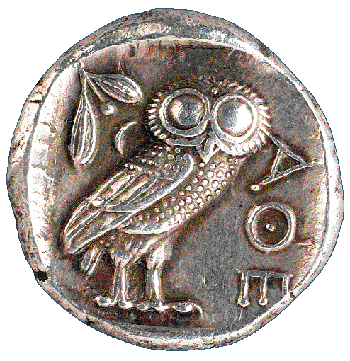.jpg)
Angela Costi, Lost in Mid-Verse. ISBN 0977543323. Owl Publishing, Melbourne. RRP$10

Dimitris Tsaloumas, A Winter Journey. ISBN 0977543315. Owl Publishing, Melbourne. RRP$10
§
The two chapbooks under review are published by Owl Publishing, an independent concern whose mission is to publish works by selected Greek-Australian writers. Many of the books are in bilingual form. The Tsaloumas reviewed here is one such example.
Angela Costi was born in Australia to parents who migrated from Cyprus. She is the author of three collections of poetry: Dinted Halos, Prayers for the Wicked and Honey and Salt. As Peter Lyssiotis remarks in the introduction to her newest publication, Lost in Mid-Verse, this is a collection of seven new poems that mark ‘a refocussing of Costi’s vision: the move from primarily verse, which … demands to be … performed, to … verse that sits comfortably on the page, waiting for the reader to engage’.
Wise and shrewd, these are mature, contemplative works. There is a discernment and level of engagement with form and subject that immediately captivates. Possibly because they were written for private reading, it is a quiet, pensive book; and while it reflects on universal questions, it also speaks to individuals caught between cultures and states of mind. This element brings a welcome tension. Costi does not take the easy way, pushing boundaries and challenging preconceptions about womanhood and ethnicity, even as she yields to nostalgia.
Poems such as ‘Mothers’ and ‘Gate’ startle with insurrection, steely resoluteness and harshness. Amid the clamour, the unique voice is loud and clear, as is the barely contained exasperation with life, convention and its concomitant expectations. Constant craving, movement, is the proposal. Followed by the question: to stay or to go? Both come with a curse.
The eye-catching jacket reflects the domestic wilderness at the heart of Costi’s chapbook, and the sensual—erotic—approach to everyday exchanges.
§
Dimitris Tsaloumas is more fatalistic. Born in Greece in 1921, he came to Australia in 1952 to escape political persecution. Six of his poetry volumes were published in Greece before a selection from these books was published in his adopted home. The Observatory was published in 1983, winning the National Book Council Award. Falcon Drinking, his debut book of poems written in English, was released in 1988 to acclaim. He has since become a fixture in the Australian literary landscape, winning many accolades, including the Patrick White Literary Award.
Tsaloumas brings to mind the poet as visionary or bard. There is weight and dignity to his utterance. His is a declaration in the face of universal indifference to human suffering. The polished, concise verse has a pagan outlook and indeed often he brings to mind Tiresias, the blind prophet of Thebes renown for prophecy. Possibly because Tsaloumas is elderly and in his final illness, the fourteen poems that comprise A Winter Journey emanate a sense of last rites. Each step offers a glimpse to a man preparing for the next stage of life, resolutely and with foresight.
Beginning with a poem called ‘The Calling’ and ending with ‘Songs of the woodworm’, there is a sense of suspension in a timeless realm, frozen and awaiting the great thaw. From the beginning, the poet is confined, awaiting instruction or illumination. By degrees, he moves forward. Life flashes before him. He is accosted by harbingers, bitter-sweet memories tempt and vanish, hope rises and falls; all along there is the original domain of ‘the vast emptiness/ of mother steppe’.
The noun ‘mother’ occurs four times in this collection; the phrase ‘mother steppe’ appears twice. The repetition is a summons. In the end primordial forces lead to ‘virgin time’ and the acceptance that transience is integral to the human condition.
Both chapbooks are about liminal states. They occupy restless shifting stages and points of view. Each poem places the reader on a boundary or threshold, about to step into the unknown or set off on a long journey. As Peter Lyssiotis notes in his introduction to Costi, bridges are traversed in order to to satisfy a hunger, an inner urge that never ends. The journey is the important thing; and journey’s end might not be what you expect.
Themes and images link the two books in a dialogue. It is the seeming oppositions between Costi and Tsaloumas that create a conversation. Costi can lose herself ‘between bed and mirror/ cot and door/ lamp and window’, and still find a universe, while Tsaloumas gazes to a limitless horizon that is strangely close and personal. He stands at the edge, contemplating the chasm, and finds that the answers come ‘back to the heart/ of many-seasoned timber’. Costi responds by tracing a matrilineal line from homely space to open-prairie rebellion with the exultant declaration ‘And come night/ breasts/ bared.’
§
Dmetri Kakmi, author of the memoir Motherland, was born in Turkey in 1961 to Greek parents. His essays and reviews have appeared in The Age, The Australian, Middle Eastern Times and Neos Kosmos, and magazines including Heat, Meanjin, Australian Review of Books, Istanbul Literature Review, Cinema Papers, Metro and Senses of Cinema.

